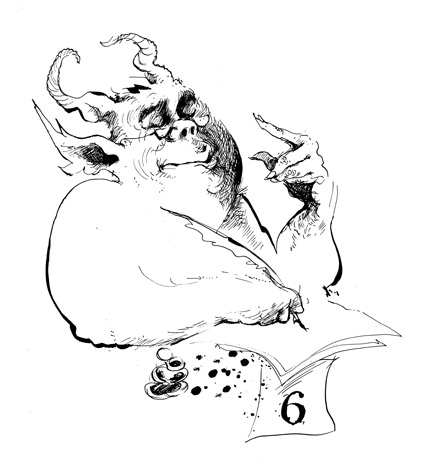by Richard Scorer

As The Times reported last week, my client Matt Drapper has received a damages settlement from St Thomas Philadelphia church in Sheffield after being subjected to an exorcism to rid him of the “demonic possession” of homosexuality. Since I posted about the case many people have asked me for more information so this piece explains the factual and legal background. Stephen Parsons has written about this case previously; you can read his earlier blog here https://survivingchurch.org/2022/09/20/when-do-forms-of-pastoral-care-become-a-safeguarding-concern/
Claimant’s Allegations
At the outset of the case Matt provided the following account to me: this is a summary of what he says happened and I should state that this is not necessarily accepted by St Thomas Philadelphia. In 2013 Matt was accepted into a one-year internship programme at St Thomas. The internship was presented as a structured programme involving a mixture of training and working in the church’s publishing branch. The program was said to include education on discipleship, weekly sessions learning to listen and respond to God and mentoring to develop leadership skills. Matt declared his sexual orientation on joining the programme. He was aware that some people at St Thomas held negative views of homosexual acts but was told that the church was “on a journey” towards greater understanding. Therefore he did not think that his homosexual orientation was at odds with his involvement in St Thomas. On Matt’s account, at no point until the day before the exorcism took place was he made aware that the church or some in it equated homosexuality with demonic possession, and at no point until the exorcism was underway was he made aware that the purpose of the exorcism was to change his sexual orientation.
After joining the internship programme he was told that like other interns he had to attend an “Encounter God Weekend”. Ahead of the weekend he was required to complete a questionnaire including highly personal questions about his childhood and any challenges he was trying to address in his adult life. The completed questionnaires were passed to St Thomas’s ‘Prayer Ministry team’ seemingly so a bespoke prayer session could be planned. On the questionnaire Matt gave information about his struggles with understanding and accepting his sexuality within the Christian context. Although he was aware that some prayer would take place in connection with the matters identified, he had no forewarning until it happened that an exorcism would be performed upon him, or that it would be based on the belief that homosexuality arises from demonic possession. At the “Encounter God Weekend”, and the day before the exorcism, Matt and other interns were informed for the first time that certain activities or agreements formed legal contracts that allowed demons to enter the bodies of Christians, influencing thoughts and decisions, and that issues interns struggled with such as relationships, leadership, anxiety and fear were likely to be the result of demonic possession. A teaching session run by members of St Thomas’s “School of Inner Healing and Deliverance” instructed interns that “sexual impurity” allows demons to enter their bodies. Sexual impurity was presented in the context to include any sexual activity or sexual thoughts outside of marriage between a male and a female. Matt was thereby informed for the first time that as a person of homosexual orientation he had allowed a demonic influence to come into his life. He understandably felt very ashamed and afraid. Interns were also taught in this session that demons can leave the body as a rush of air and that if a person has a physical bodily reaction, negative response or feels a wish to cease the prayers, this in itself is evidence of demonic possession. Accordingly, as taught in this session, persistence with mandated prayers would be imperative even in the face of physical and emotional distress. On the next day, interns were ordered to undergo an hour of Prayer Ministry with two people who had been assigned by St Thomas’s “School of Inner Healing and Deliverance”. Matt was told that he was carrying the “spirit of victim” and had a “hereditary demon”. Matt was then instructed to use the following prayer and asked to repeat it and speak it over himself, with the “issue” inserted either being homosexuality or a word or phrase with similar meaning: “I break the power of (issue) over me. I confess my sin of (issue). I forgive those people who have spoken (issue) over me and I forgive myself for believing and entering into this belief system. With no guilt or shame, I renounce this belief system and the curse of it and I break it over my life through the blood of Jesus to redeem sin. I cancel my agreement with Satan. I forgive myself for believing this ungodly belief, renounce and break the agreement with this lie, cancel the agreement with the kingdom of darkness. Any associated demons GO in the name of Jesus with my authority”.
Matt received no prior warning of this prayer or any opportunity to consider its impact on him. Accordingly, he had no choice but to repeat it as instructed. Matt was then told that he needed to break any agreements he had made with Hollywood, the media or other people who had caused him to enter into the ungodly lifestyle of choice of homosexuality. He was instructed to repeat the following prayer: “I forgive myself for my lifestyle. Lord forgive me. I forgive other people who have shaped this lifestyle. I cancel my agreement with the kingdom of darkness.” He felt very distressed about this wording, of which he had no forewarning; he had never “chosen” to enter into a gay lifestyle nor did he feel the media or others had led him to believe he was gay. He had no choice but to repeat the prayer. The session leader then explained she also had another prayer that would “break” homosexuality away from Matt’s life. The prayer was as follows and was written on a piece of paper, suggesting it had been used before and would be used again: “I renounce my homosexual lifestyle and the belief systems that have allowed it into my life. I break the power of homosexuality over me. I confess my sin of believing the homosexual lifestyle is acceptable for me to live. I break the curse of it over my life through the blood of Jesus to redeem sin. I cancel my agreement with Satan. I renounce and break the agreement with this lie, cancel the agreement with the kingdom of darkness. Any associated demons GO in the name of Jesus!”
Having been ambushed with these prayers and required to say them in turn, Matt found himself experiencing an extreme psychological and physical reaction including intense pressure in his chest, tightening of his stomach and throat, and dryness in his mouth. He felt overwhelmed and in extreme physical pain. His distress was visible and very obvious. The session leader pronounced herself to be delighted with the distress exhibited and said “I can see demons coming out of you and leaving hand in hand, marching out of the window”. Matt remembers his eyes being hot and his vision was blurred. Following the exorcism he was very distressed, feeling ashamed of his thoughts, his sexual orientation, and fearful that he had been “making an agreement with demons” as he had told in the session.
Over the days and weeks following the exorcism, Matt became deeply depressed, experiencing suicidal thoughts. He felt totally isolated, but his mentor minimised what happened as normal. He felt broken by the experience. He experienced many months of extreme distress. In September 2014 he told church leaders that he was still gay and open to dating, He was then denied entrance to a second year of leadership training, due to still being gay. He was accepted onto another leadership team at the Church, and worked mentoring students until 2016 when he was quite suddenly told he could no longer be around the students due to his position on LGBT issues. He was told that he was a dangerous influence on young adults and children because he was openly gay and the Church thought this would influence others. He was shunned and silenced. Religion had formed a strong pillar in his life up to this stage, so the inability to access it began to impact his faith very heavily.
In 2019 Matt became aware that he had the option to make a formal complaint both to St Thomas and to the Diocese. In November 2019 he submitted a formal complaint to St Thomas’s and the Church of England Bishop of Sheffield which included an allegation that in 2014, he experienced Prayer Ministry which was an exorcism that attempted to change his sexual orientation from gay to straight. St Thomas’s investigated and responded to Matt’s complaint in December 2019 stating the allegations had not been upheld as there was “no evidence to substantiate….the complaint”. St Thomas’s position, in effect, was to deny that the ‘exorcism’ had occurred at all. In the legal claim we alleged that St Thomas’s had a longstanding practice of performing such ‘exorcisms’ and knew full well that Matt’s complaint was true, and justified, but chose to deny it in order to conceal the extent of such activity in the church. The Diocese of Sheffield were also aware of the complaint and undertook their own investigation. At the Core Group Meeting in September 2021 a decision was made to commission an independent investigation by Barnardo’s into Matt’s complaint. The independent report was published in November 2023 and all four of Matt’s complaints were upheld including the complaint that he was subjected to an exorcism which attempted to change his sexuality. Following the publication of the Barnardo’s report, St Thomas’s apologised to Matt, stating that: “With the Barnado’s review having been completed and having read the findings, I would like to apologise for what you experienced at the church in 2014 and for the way your complaint was handled at the time”.
Legal claim
St Thomas Philadelphia is a hybrid Baptist/Church of England Church and in respect of safeguarding and the conduct of exorcisms purports (and purported at the time) to act according to the rules and regulations of the Church of England. Church of England House of Bishops’ Guidelines for Good Practice in the Deliverance Ministry from 1975 (revised 2012) stated the following in respect of any ‘exorcism’:
1. It should be undertaken by experienced persons authorized by the Diocesan Bishop;
2. It should be done in the context of prayer and sacrament;
3. It should be done in collaboration with the resources of medicine;
4. It should be followed up by continuing pastoral care;
5. It should be done with the minimum of publicity.
On Matt’s behalf we alleged that that neither of the individuals who carried out the ‘exorcism’ were authorised by the Bishop of Sheffield to carry it out, although they were authorised by St Thomas’s . Further, the exorcism was not “done in collaboration with the resources of medicine”, nor was it “followed up by continuing pastoral care”. We pointed out that an exorcism conducted in breach of these guidelines carries the obvious risk of harm to the person upon whom the exorcism is performed. We alleged that the ‘exorcism’ constituted an intentional infliction of psychiatric harm, performed in the knowledge that similar ‘exorcisms’ performed by St Thomas’s Deliverance team had previously caused harm to others, and which caused personal injuries to Matt.
When I posted about this case on social media several people complained that the law is targeting and trying to stymie religious expression. This is nonsense. The legal basis of the claim (what lawyers call the ‘cause of action’) was the tort of intentional infliction of psychiatric injury. This tort has existed in English law since the 1897 case of Wilkinson v Downton and has been refined more recently in other cases such as O (A Child) v Rhodes and another (2015) (in which proceedings were brought on behalf of a child (11 years old and psychologically vulnerable) to prevent the publication of a book by his father, a famous concert pianist which described his experiences of sexual abuse as a boy; the claim failed in the Supreme Court as the elements of the tort were not made out). The tort applies equally and neutrally to secular and religious settings – for example it has been used as the basis of a claim against a school where a paedophile teacher groomed a child and encouraged her to send him indecent images of herself. The tort does not ‘target’ religion; if the elements of the tort are made out liability will follow irrespective of whether the defendant is religious or secular. Of course, the right of religious organisations to practice religion and worship as they see fit is guaranteed by article 9 of the European Human Rights Convention and the UK Human Rights Act; however, the article 9 right is not absolute and can be abridged where harm is caused to others.
In the event St Thomas’s denied liability but offered a settlement which Matt accepted. Therefore, this case is not a court ruling so it does not create a formal legal precedent. However, to my knowledge, this is the first ever payment of damages in response to a claim for psychological harm caused by conversion or exorcism practices. It confirms that a legal route exists by which conversion practices can be challenged where psychiatric harm is caused. Arguments may arise around whether the constituent elements of the tort have been made out, and around issues of consent (where adults are concerned consent may be a complete defence to a claim in tort) . Ultimately because of the settlement these issues were not adjudicated by a court in this case, but I am sure that there will be further legal claims. I would prefer that churches abandon these abhorrent practices of their own accord, but the risk of legal liability may also encourage them to do so. Church insurers may also be more reluctant to provide insurance cover to churches that engage in harmful conversion practices.
Richard Scorer is Head of Abuse Law and Public Inquiries at Slater & Gordon Lawyers (UK). He acted for Matt Drapper in this case







